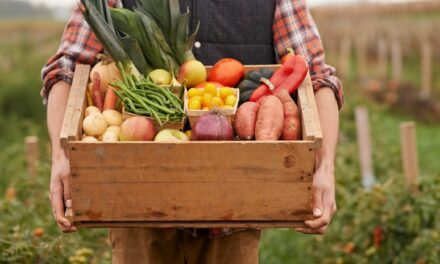
Responsible Consumption and Short Supply Chains: Encouraging the Purchase of Local and Seasonal Products to Reduce the Carbon Footprint of Food Transportation

In a world increasingly aware of environmental, economic, and social issues, responsible consumption is emerging as an essential choice for the future. One of the pillars of this approach is the adoption of short supply chains, which promote the purchase of local and seasonal products. This consumption model aims to reduce the carbon footprint associated with food transportation while supporting the local economy and offering consumers higher quality products. As concerns about climate change intensify, short supply chains have become a key solution to encourage more sustainable and ethical consumption patterns.
What is responsible consumption?
Responsible consumption is defined as a way of purchasing and consuming products with consideration for their impact on the environment, society, and the economy. It is no longer just about meeting individual needs, but about considering the entire production chain and the consequences this can have on the planet and its inhabitants. It involves prioritizing products that meet environmental, ethical, and social criteria, such as local products, fair trade items, or those made from sustainable materials.
Responsible consumption is not just an individual act; it is part of a global movement toward a more sustainable economic model. By choosing products with a reduced environmental impact, consumers can actively contribute to reducing greenhouse gas emissions, preserving natural resources, and protecting ecosystems.
Short supply chains: A response to environmental challenges
Short supply chains are at the heart of this approach. These are distribution systems where the number of intermediaries between producers and consumers is minimized. This can take the form of direct farm sales, farmers’ markets, cooperatives, or online platforms dedicated to local products. The main goal is to bring production and consumption closer together, thereby limiting the distances food travels.
One of the major advantages of short supply chains is the reduction in carbon emissions associated with transporting products. Imported food, often produced thousands of kilometers away, requires complex logistics that include air, sea, or road transportation. Each step generates greenhouse gas emissions, contributing to global warming. In contrast, buying local products helps limit these emissions by reducing the distances traveled. According to a study by ADEME (the French Agency for Ecological Transition), short supply chains can reduce transport-related emissions by 30 to 50%.
Supporting the local economy and strengthening territorial resilience
Opting for local and seasonal products not only offers environmental benefits but also provides economic and social advantages. Buying local means supporting regional producers and contributing to the local economy. This model helps maintain and create jobs, invigorates rural areas, and promotes proximity farming.
By strengthening the links between producers and consumers, short supply chains also provide greater transparency about the origin and production conditions of food. Consumers are better informed about what they are buying and can have a more direct relationship with producers, which fosters trust and product traceability.
Moreover, short supply chains enhance territorial resilience. In times of crisis, whether economic, health, or climate-related, local production and distribution systems are less vulnerable than globalized supply chains, which are often fragile. The COVID-19 pandemic highlighted this fragility, with major disruptions in food supply chains worldwide. In contrast, short supply chains proved to be more robust and flexible in meeting consumer needs.
Higher quality, fresher, and healthier products
Buying local and seasonal products through short supply chains also offers benefits in terms of food quality. By reducing the distance traveled, products arrive fresher on consumers’ plates, preserving their nutritional value. Fruits and vegetables are often harvested at peak ripeness, ensuring better flavor and a higher concentration of vitamins and minerals.
Additionally, purchasing seasonal products avoids the need for intensive greenhouse farming or imports from distant countries, which often require chemical treatments to extend shelf life or accelerate ripening. By opting for products grown under natural conditions, consumers can enjoy healthier foods free from pesticide residues or preservatives.
Challenges of local consumption and short supply chains
Despite the many benefits of short supply chains, challenges remain. The first is the issue of cost. Buying local products is sometimes more expensive, as production costs are often higher than those of large-scale intensive farms or mass imports. However, this price difference can be offset by better product quality and a reduced ecological footprint. Consumers also need to be educated about the benefits of local consumption and be willing to adjust their purchasing habits.
Another challenge is product availability, which can vary depending on the season and region. Adopting responsible consumption thus means adapting to seasonal availability and diversifying eating habits, which may represent a significant change for consumers used to having constant access to the same products year-round.
Finally, infrastructure needs to be developed to support short supply chains, particularly in urban areas. Logistical platforms, farmers’ markets, and distribution points need to be reinforced to make local products more accessible to city dwellers, who make up a growing portion of the population.
Conclusion
Responsible consumption and short supply chains offer a concrete response to the environmental, economic, and social challenges posed by the current consumption model. By reducing the carbon footprint associated with food transportation and supporting local producers, these initiatives contribute to a more sustainable and equitable way of living. For consumers, it is an opportunity to adopt eating habits that are more respectful of the planet while benefiting from higher quality, fresher, and healthier products. Although challenges remain, the development of short supply chains is a promising path toward more responsible consumption and a more resilient local economy.



















